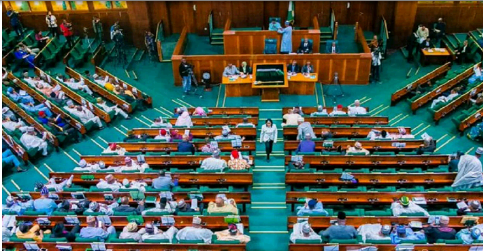A bill proposing the creation of a new state in the South-East region has successfully passed its second reading in the House of Representatives.
During Thursday’s plenary session, the bill advanced to the next stage without debate. When Speaker Abbas Tajudeen called for a voice vote, the lawmakers overwhelmingly supported the motion. Consequently, the bill was referred to the Committee on Constitution Review for further consideration.
The bill, Sponsored by Amobi Ogah (LP, Abia), Miriam Onuoha (APC, Imo), Kama Nkemkama (LP, Ebonyi), Chinwe Nnabuife (YPP, Anambra), and Anayo Onwuegbu (LP, Enugu), seeks to establish Etiti State, carved out from Anambra, Imo, Ebonyi, Abia, and Enugu.
Ogah highlighted that the bill aims to address longstanding issues of regional parity and administrative efficiency in the South-East zone.
“The creation of Etiti State is not just about adding another state to the map,” Ogah said. “It’s about ensuring that the South-East receives equal representation and resources, which are crucial for the region’s development and stability.”
The move to create Etiti State comes in the midst of growing calls for increased representation for the South-East, which currently has the fewest states in Nigeria with just five.
While the North-West has seven states, other regions—South-West, South-South, North-East, and North-Central—each have six states. This disparity has long been a point of contention and has driven various political and civic leaders in the South-East to advocate for the creation of an additional state.
However, the bill faces competition from another proposal sponsored by Ikenga Ugochinyere (PDP, Imo), which aims to create Orlu State. Ugochinyere’s proposal has garnered significant attention and debate, adding another layer of complexity to the quest for new state creation in the South-East.
Additionally, Senator Ned Nwoko (PDP, Delta) is contemplating sponsoring a bill to establish Anioma State from the current Delta State (South-South), which would also be added to the South-East region. Nwoko argues that the inclusion of Anioma State in the South-East would further balance regional representation and bring more equitable development to the area.
Proponents argue that new states will enhance governance, bring government closer to the people, and promote development. However, they acknowledge the challenges ahead, particularly in portioning the political landscape and competing interests within and outside the South-East.




